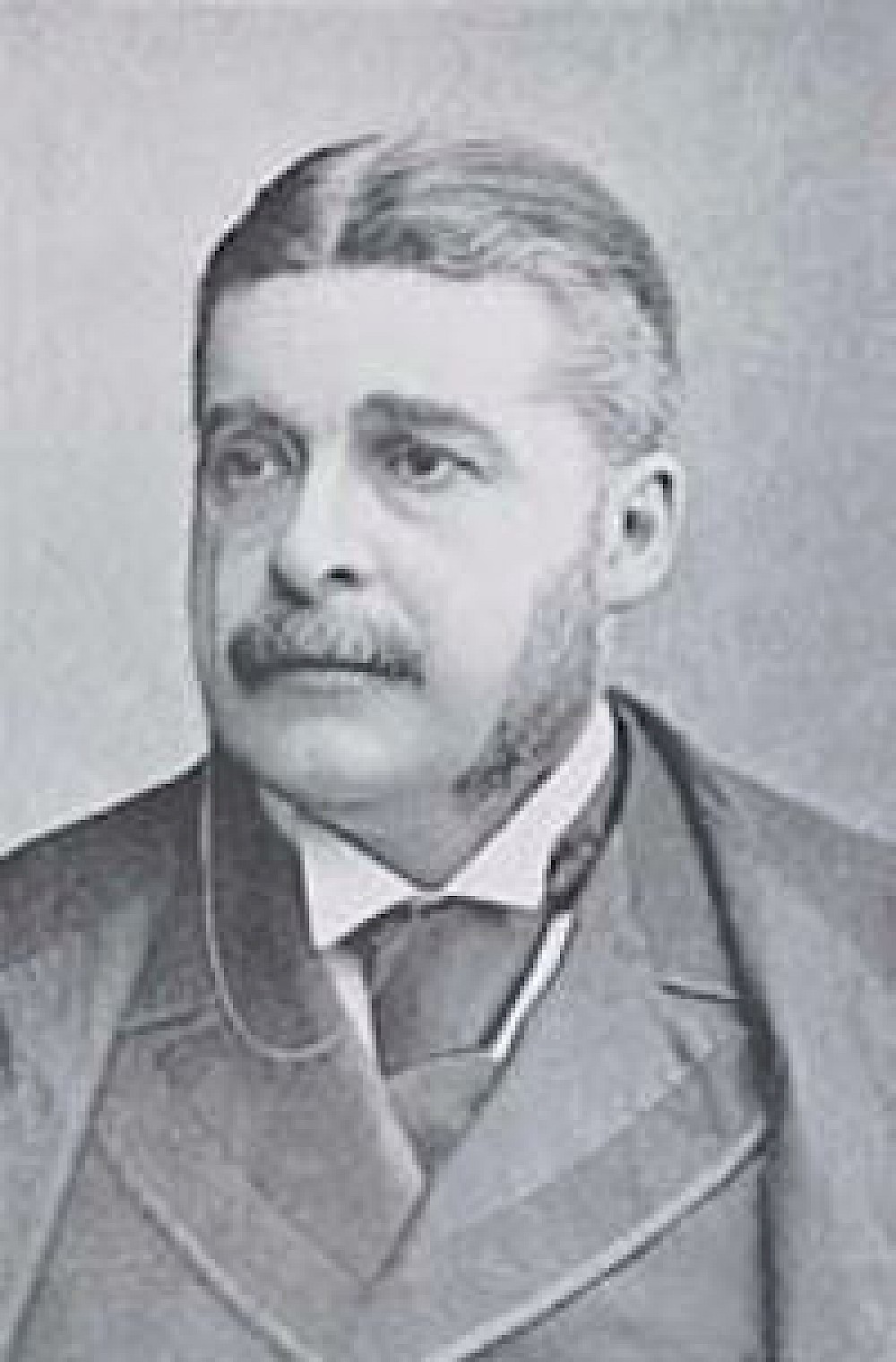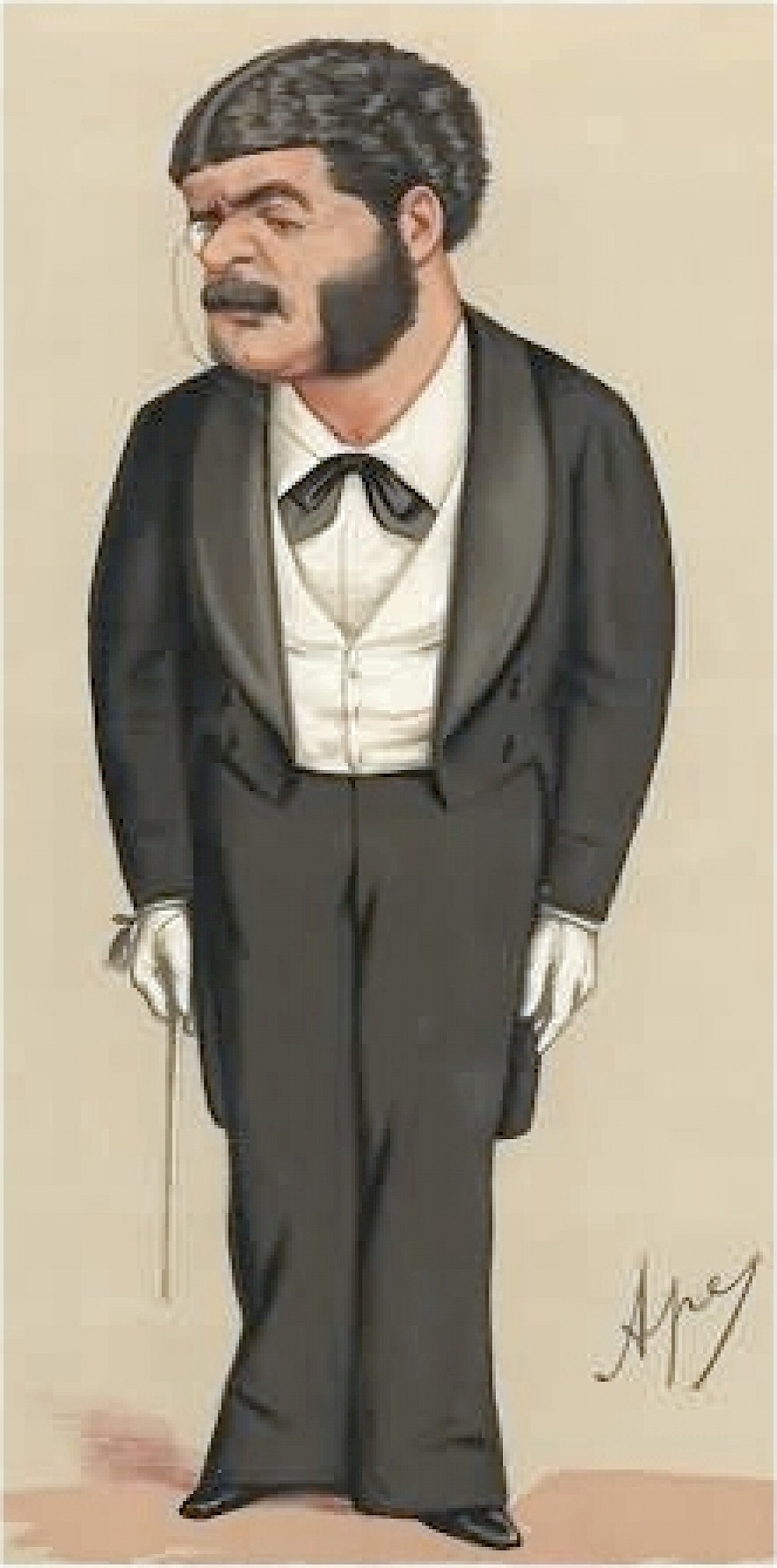

For the Festival in October 1880, a Chorus of 306 was engaged, mainly from Leeds, with delegations from further afield, particularly Huddersfield, with James Broughton as chorus master. When Sullivan arrived for the first rehearsal with them on 4 June, he was greeted with cheers and applause. At the second, he rehearsed for the first time his new cantata The Martyr of Antioch, with words by Dean Millman and W S Gilbert. It was usual for large numbers of strangers to sit in the Town Hall gallery for rehearsals, which irritated Sullivan because the singers objected to being “criticized and carped at”. A system of permission cards was introduced, with donations to medical charities invited.
During the Festival, Sullivan stayed in rooms at 13, Lyddon Terrace, a brisk walk away from the Town Hall. For subsequent Festivals he stayed at the Judges Lodgings in Stonegate Road. On the Wednesday morning when he took his place at the conductor’s desk ready for Elijah, he was warmly greeted. The following day, Walter Macfarren conducted his own Hero and Leander, Bennett’s May Queen reappeared and the Committee got what it wanted – Beethoven’s Ninth. The Martyr of Antioch formed the first part of the programme on 15 October. The reviewer from the Leeds Mercury loved it (“The extraordinary merit of the orchestration was as plain as the sun of a cloudless noon.”) reporting that the ladies of the Chorus had “gracefully conspired to dress in white” as a compliment to the composer. They might have been slightly obscured by the fog which had crept in, but the “the curved lines of gas just above each side of the orchestra were useful as well as ornamental”. Chorus members cheered at the end – or rather the men cheered, because ladies were expected to flutter their handkerchiefs.

Sullivan conducted a further six Leeds festivals. In 1883 there were two first English performances, of Joachim Raff’s only oratorio The World’s End – The Judgement – The New World, which uses a text adapted by Raff from the Book of Revelations, and of Bach’s Thou Guide of Israel. The Danish composer Niels Gade’s cantata The Crusaders was well received, and Dr Spark excelled on the organ as usual, this time along with Walter Parratt. In 1886, four works received first performances, all conducted by their composers: Stanford’s nautical ballad The Revenge, Alexander Campbell Mackenzie’s The Story of Sayid, Dvorak’s St Ludmila and Sullivan’s The Golden Legend.
The Golden Legend is a cantata based on the poem of the same name by Henry Wadsworth Longfellow. It greatly satisfied the composer himself and was a complete triumph at its first performance. It was to be performed many times after the Leeds Festival, including in the Royal Albert Hall in front of the Queen. She sent for Sullivan and said, “At last I have heard The Golden Legend, Sir Arthur…you ought to write a grand opera – you would do it so well.” It was considered to be Sullivan’s best serious work, and Victoria was joining those who said that Mr Sullivan had produced a few too many comic operas, too much ephemera. Word of The Golden Legend reached the royal relatives in Germany, and in 1887 Sullivan was thrilled to learn that his work – his serious work – had been chosen for a gala performance to celebrate the ninetieth birthday of Kaiser Wilhelm the First; but he found that he could not escape comic opera, even in Potsdam. When he met the Kaiser and the Royal Family, a regimental band was playing tunes from The Mikado in the courtyard.
In 1889, Sullivan was really stretching himself. After a prolonged period of work on The Gondoliers he had gone straight to the Leeds Festival for a series of exhausting rehearsals and concerts. He was seen to be ill, and a deputy, Joseph Barnby, had to take over most of the chorus rehearsals. The climax was an ecstatic performance of The Golden Legend on the Saturday. It was a high moment in his musical career. The following year, working on his serious opera Ivanhoe, he wrote to the demanding Frederick Spark saying that he did not have the strength to compose another new work for Leeds at his age. He was forty-seven.
In 1892 Sullivan’s health meant that Sir Joseph Barnby had to take over the weekly choral rehearsals nine times. The committee, alarmed, proposed engaging Barnby as assistant conductor for the entire festival. Sullivan was much put out and offered his resignation but the chastened committee persuaded him to withdraw it; he threw his energies into rehearsing and conducting, including performances of Elijah, Bach’s Mass in B minor and a substantial excerpt from Die Meistersinger.
The 1895 festival showed Sullivan’s powers waning: his conducting style did not project a personality and was seen as old-fashioned, especially against the more active approach of younger musicians such as Barnby and Parry.
1898 was Sullivan’s last Leeds Festival, his seventh. He received standing ovations that were unprecedented even for him. He wrote:
He never saw them again. He was suffering all the time, probably beginning to rely on morphine, and had to have a deputy conductor standing by. The following year he resigned.
His illness was just one of the reasons he had to resign. The London critics had been sticking pins into Sullivan for the previous decade. He wrote about “the sneers of The Times” and knew that he was not in the running for ‘national composer’. He had made fun of the establishment too many times in his operas, had squandered large sums of money on horse-racing, and had been amorously involved with a (gasp) married American woman.
Sullivan died on 22 November 1900, of cardiac arrest brought on by bronchitis on top of the kidney trouble that had plagued him for 20 years.